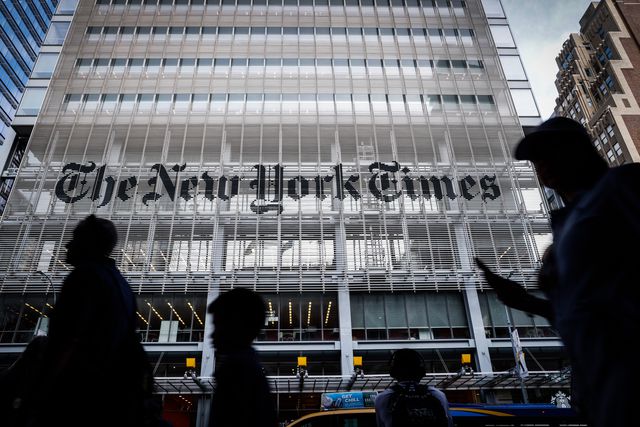


New York Times Takes a Stand Against AI Training on Its Content
In a groundbreaking move that has caught the attention of technology enthusiasts and content creators alike, The New York Times (NYT) has introduced stringent measures to prevent the utilization of its content for training artificial intelligence (AI) models.
This new development, aimed at safeguarding the publication’s intellectual property, signifies a notable step in the ongoing dialogue between technology advancement and copyright protection.
As of August 3rd, the NYT’s updated Terms of Service now explicitly prohibit the use of its extensive range of materials—comprising text, photographs, videos, audio clips, metadata, and even the distinctive “look and feel” of the publication—for the development of software programs, particularly those involving machine learning and AI systems.
This is interesting move, yet hard to police. The NYT’s commitment to maintaining control over its content and protecting its unique identity could cause a landslide of other news outlets to follow suit.
The recent amendments also extend to automated tools such as web crawlers, which are commonly employed to extract data from websites.
The revised terms stipulate that the use of such tools to access, use, or gather NYT’s content requires prior written consent from the publication.
This significant move towards regulating the deployment of automated tools reflects the NYT’s determination to curb unauthorized use of its content in AI-related endeavors.
While the publication has taken robust steps to regulate the active use of its content in AI training, it’s more than a little strange that the NYT has not made alterations to its robots.txt file—a mechanism that guides search engine crawlers on which web pages to index.
The NYT focus on controlling the application of its content for AI training rather than restricting its visibility on the internet might just be a very clever move.
Their decision comes at an intriguing juncture, coinciding with Google’s recent authorization to employ publicly available web data for the enhancement of its AI services.
Google’s move to leverage public data for its AI advancements, as outlined in its updated privacy policy, has brought to the forefront the complex interplay between technological innovation and intellectual property rights.
Prominent language models, including OpenAI’s widely recognized ChatGPT, are often trained on extensive datasets, which may encompass copyrighted or otherwise safeguarded materials scraped from the internet without direct authorization from the creators.
This prevalent practice has ignited some serious discussions about the balance between fostering AI progress and respecting the rights of content originators.
As the AI landscape continues to evolve, the steps taken by influential entities like The New York Times and Google will inevitably shape the trajectory of AI development and its interaction with copyrighted content.
The dynamics at play reveal the intricate interrelationship between technology, creativity, and copyright protection, ultimately steering the course of AI innovation in the digital age.
But, as some critics have stated, it may be too little too late on this front.
Read the original story here:
The Verge



This is a needed step to guard against AI takeover on the Internet and replacement of all labor of writing and typing to be done by AI..
They can even tell lies to bypass any kind of security with greater intelligence that is among all the evil going on now!!!
Is it enough.. not even close.
Stopping AI from stealing all that is good and right for the economy, this is what is needed to focus on.
Computers and electronics have been used deceitfully for too long!!
We need to find ways to battle against it and take out all this garbage.
They already own all our kids and young adults who still live with mom and dad while sucking all their resources while still making babies, playing endless games, going to church and numb to what is really going on!!!
This AI has already been here and in robotics and cars, marketing, Human Resource management and execution and a whole lot of other areas you would never imagine..
We keep getting weaker and the criminals keep getting stronger…
are you angry yet?!?!?! I am.. lets throw out this trash before destroys us.